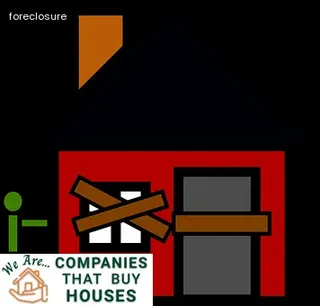Delaware state foreclosure laws are designed to protect both homeowners and lenders. The Delaware statutes provide certain rights and procedures for lenders, including the ability to foreclose on a mortgage if the homeowner defaults on payments.
Additionally, they also provide a number of protections for homeowners facing foreclosure, such as requiring the lender to send notice of their intent to foreclose, setting strict timelines and guidelines for the process, and establishing mediation options between lenders and borrowers. Ultimately, these laws aim to prevent unnecessary foreclosures while also ensuring that lenders are able to properly recover their losses in cases where borrowers have defaulted on payments.
Homeowners need to be aware of these regulations so they can navigate the Delaware foreclosure process effectively and hopefully save their home from being foreclosed upon.

In Delaware, lenders must provide homeowners with several notices before they can begin the foreclosure process. These notices include a notice of intent to foreclose, a notice of acceleration, and a demand letter.
The notice of intent to foreclose is sent after the borrower has missed two or more mortgage payments and informs them that foreclosure proceedings are about to begin. The notice of acceleration is then sent and informs the borrower that all loan payments are due immediately.
Finally, the lender sends a demand letter which notifies the borrower that if they do not pay off their debt in full by a certain date, they will face foreclosure proceedings. It is important for homeowners in Delaware to be aware of these notices so that they know what steps to take when facing potential foreclosure.
Navigating the foreclosure process in Delaware can be a daunting task for homeowners. Knowing the laws and regulations that govern foreclosures in the state is key to understanding what rights are available to borrowers facing foreclosure.
The first step to navigating a foreclosure in Delaware is to understand the different types of foreclosure proceedings available, including judicial and non-judicial foreclosures. Judicial foreclosures involve filing a lawsuit with the court and require a judge’s approval before any action can be taken against a property.
Non-judicial foreclosures allow lenders to take possession of the home without involving the court system, but this type of foreclosure requires specific documents and notifications from the lender prior to taking action on any property. It's important for homeowners in Delaware to know their rights throughout each step of the foreclosure process, including pre-foreclosure notices, redemption periods, and post-foreclosure eviction procedures.
Homeowners should also be aware of potential defenses they may have against foreclosure, such as violations of state or federal laws regarding predatory lending practices or wrongful actions taken by lenders during loan origination or processing. Seeking legal advice from an experienced attorney is highly recommended to ensure that homeowners understand all their options when dealing with foreclosure proceedings in Delaware.

In Delaware, a foreclosure process begins when a homeowner fails to make their mortgage payments. Lenders must use the state's judicial foreclosure process, which means they must go through the courts in order to repossess the property.
The lender must file a complaint with the court and provide notice of the delinquent debt to the homeowner. Once this is done, the court will issue a summons to the homeowner and any other lien holders on the property.
If no answer is given within 30 days, then a judge may enter a default judgment against them, allowing for foreclosure proceedings to begin. Foreclosure sales can take place as soon as 20 days after this default judgment is issued.
Homeowners should be aware that even if they are facing foreclosure it is still possible to save their home by either working with their lender or filing for bankruptcy protection.
In Delaware, homeowners in preforeclosure are required to receive a notice from the lender prior to their home being foreclosed upon. This notice, called an Acceleration Notice, must include specific information such as terms that are necessary for foreclosure and the amount of time the homeowner has to respond.
The homeowner must be served with the document either by certified mail or in person at least thirty days prior to foreclosure. The Acceleration Notice must also specify whether or not a hearing is available if the homeowner wishes to contest the foreclosure, and if so, how they can request one.
Any other notices from the lender during that period must also be delivered in accordance with Delaware law. Homeowners should take extra caution when reviewing all documents related to their mortgage and foreclosure process because there may be important details included which could affect their rights and responsibilities.
It is highly recommended that homeowners seek legal advice before responding to any document received from their lender during preforeclosure proceedings so they can better understand their options.

A breach letter is an official notification from the lender to the borrower that they are in violation of a contract. This could include failing to pay the mortgage or not following other terms outlined in the agreement.
When a homeowner is sent a breach letter, it means they have a certain amount of time to address their default before the lender begins foreclosure proceedings. The timeframe can vary depending on state law and the specifics of their situation.
A breach letter can be extremely stressful for homeowners since it is typically seen as an indicator that foreclosure may be imminent. It’s important for those who receive one to understand how it works and what steps need to be taken in order to avoid this process.
Falling behind on mortgage payments can have serious consequences, and defaulting on a mortgage payment is no exception. One of the most significant penalties for not paying your mortgage is foreclosure, which occurs when a homeowner fails to make their monthly payments for an extended period of time.
In Delaware, lenders must file a lawsuit in Court to begin the foreclosure process. The court will then issue a Notice of Default and a Foreclosure Sale Date will be set.
Homeowners should take action as soon as possible if they are facing foreclosure; doing nothing may result in them losing their home and possibly any equity they have built up over the years. After the property is sold at auction, homeowners may be liable for any remaining balance due on the loan.
If homeowners are unable to pay off their debt or negotiate with their lender, they may need to seek legal advice.

In Delaware, it is possible for homeowners to reinstate their mortgage before foreclosure. This is when a homeowner pays the lender the entire amount of delinquent payments, including late fees and other associated costs.
Homeowners should be aware that this option may not be available in all cases, as lenders can refuse to accept payment if they have already initiated legal action. It is important for homeowners to understand that the time frame for reinstating a mortgage before foreclosure is typically very short, so it is essential to act quickly if this option becomes available.
Additionally, if homeowners fail to pay the full amount within the given timeframe, then they will no longer be eligible for reinstatement and could face foreclosure proceedings. Homeowners should also consider speaking with an attorney or financial advisor prior to pursuing this option in order to ensure that they are taking all necessary steps towards preventing foreclosure.
Knowing what happens after a Delaware foreclosure sale is important for homeowners who want to know their rights and options. In the state of Delaware, the redemption period typically begins on the day following the foreclosure sale and lasts for six months.
During this time, a homeowner may be able to repay the debt owed in full, including all interest and other costs, in order to reclaim their property. This process is also known as reinstatement of mortgage payments.
If successful, it can help a homeowner avoid eviction from their home during the redemption period. The amount due must be paid within thirty days of the date of sale or else a Certificate of Redemption will be issued by the court and title transferred to the new owner; thus ending any chance of redemption by the original homeowner.
Although there are no guarantees in this situation, homeowners should always explore every possible option before making decisions that might permanently alter their financial future.

In Delaware, if a homeowner has defaulted on their mortgage loan and the lender has pursued a judicial foreclosure, they will eventually be required to sell the property at auction. This is usually managed by a third-party auctioneer who is approved by the court.
The bidding process is open to all interested parties and the winning bid must meet or exceed the minimum amount listed in the court order for the sale. If the minimum bid isn't met, then there may be an opportunity for redemption and additional bids until it meets or exceeds that amount.
The proceeds from this sale are first used to pay off any outstanding debts including legal fees and other costs associated with foreclosure. After these expenses are paid, any remaining funds will go to the former homeowner.
It's important to note that not all states have redemption periods following an auction sale of a foreclosed property, so homeowners should consult with their local real estate laws before proceeding with this process.
When a homeowner in Delaware is facing the possibility of foreclosure, there are several options to consider. One potential solution is loan modification, which may allow the homeowner to modify their existing loan terms and reduce their monthly payments.
A second option is to apply for a repayment plan, which can allow the homeowner to pay back any past due amounts over an extended period of time. Additionally, homeowners have the option of selling their property as a short sale if they owe more than what the home is worth.
Lastly, homeowners may also be able to work out a deed-in-lieu of foreclosure agreement with their lender, where they give up ownership of their home in exchange for debt forgiveness. It's important for homeowners to understand all of these options and explore any that might be applicable for them when dealing with foreclosure in Delaware.

Navigating the Delaware foreclosure process can be a daunting experience for homeowners and many find it helpful to enlist assistance from a Delaware foreclosure attorney. An experienced foreclosure attorney can assist in understanding and navigating the local laws, provide guidance on what to expect, offer advice on how to best protect your rights, and help in determining whether you qualify for any programs or alternatives.
A Delaware foreclosure attorney can also represent you in court proceedings by filing legal documents, making sure that all deadlines are met, and providing representation throughout the entire process. In addition, a Delaware foreclosure attorney can provide advice on how to handle debt collectors and other lenders who may be involved in the case.
Ultimately, having an experienced professional at your side during this difficult time can make a world of difference when trying to navigate the complexities of the Delaware foreclosure process.
When a homeowner in Delaware is facing foreclosure, the goal is often to avoid or delay eviction. Fortunately, there are legal options available that can help protect homeowners from eviction.
The first step a homeowner should take is to review their rights and obligations under state law and reach out to an attorney if needed. It's also important to understand that some lenders and servicers may be willing to restructure the loan in order to keep the homeowner in their home.
Additionally, tenants who are living in the property during the foreclosure process may have certain protections under state law. As such, it's important for a tenant to be aware of their rights before agreeing to vacate the property or face eviction.
Finally, before any property ends up at a foreclosure sale, there may be opportunities for homeowners to attempt a loan modification or engage in other strategies with their lender that could stop the foreclosure process altogether. Though these strategies can provide relief for homeowners facing foreclosure, it's important they understand all of their options and consult with an attorney if needed.

When facing foreclosure in Delaware, homeowners should consider all of their options. One possible resolution is filing for bankruptcy.
Bankruptcy can help to delay the foreclosure process and potentially make a homeowner eligible for loan modifications or other forms of assistance. In Delaware, it is important for homeowners to know that there are two different types of bankruptcy they can file: Chapter 7 and Chapter 13.
Chapter 7 eliminates most debts while allowing the homeowner to keep some property with certain exemptions, while Chapter 13 restructures debt into repayment plans that last three to five years. Homeowners should be aware that filing for bankruptcy will impact their credit score, but also has the potential to provide much-needed relief from burdensome financial obligations.
Additionally, certain state programs may be available to assist with foreclosure prevention if a homeowner files for bankruptcy. Understanding these options is key to navigating the Delaware foreclosure process and finding the best outcome possible.
Foreclosure is a difficult and complex process, but understanding it is essential for homeowners in Delaware. The length of time it takes to foreclose on a house in Delaware may vary depending on the specific situation and circumstances.
Generally, the foreclosure process in Delaware can take up to five months. During this period, there are several steps that need to be taken that include filing a complaint with the court, providing notice of the sale to all interested parties, giving homeowners an opportunity to redeem their loan by paying off the balance or making arrangements for repayment, and holding an auction for any interested buyers.
Although the foreclosure process in Delaware generally takes up to five months, it can also take longer if there are appeals or other legal issues that arise. It is important for homeowners facing foreclosure to familiarize themselves with the entire process in order to protect their rights and interests throughout.

Foreclosures can be a daunting process for homeowners, and many may worry about the consequences of letting their house go into foreclosure. Unfortunately, there are a variety of reasons why people let their house go into foreclosure.
Financial hardships such as job loss, medical bills or other unforeseen expenses can leave homeowners struggling to make mortgage payments. Other times, people may have taken on a mortgage they couldn't afford in the first place, or they may be unable to keep up with their payments due to an adjustable interest rate increase.
In some cases, homeowners may feel overwhelmed by the amount of debt they have accumulated and decide that foreclosure is the best option for them at that time. Whatever the reason might be, it’s important for homeowners to understand the consequences of letting their house go into foreclosure and to stay informed about navigating the Delaware foreclosure process if necessary.
Delaware is one of the states with a higher foreclosure rate in the nation. According to RealtyTrac, a real estate data provider, Delaware ranked eighth in the nation for foreclosures for the month of April 2018.
In fact, during that month, 1 in every 1,298 housing units had a foreclosure filing. This means that nearly 0.
08% of all housing units in Delaware experienced a foreclosure filing during this period. Despite this high rate of foreclosure filings in Delaware, homeowners can take comfort in knowing that there are resources available to help them understand and navigate the process.
To ensure they are taking the right steps toward protecting their rights as homeowners and preventing foreclosure, it's important for homeowners to be aware of current trends and laws surrounding the foreclosure process in Delaware.
Yes, Delaware is a judicial foreclosure state. This means that if you are facing foreclosure in Delaware, the lender must go through the courts to obtain title to the property.
In order for a lender to begin the foreclosure process, they must first file a complaint with the court and serve it on the homeowner. Once this is done, the homeowner will have an opportunity to respond.
If they do not answer or appear in court, then a default judgment can be entered against them. Once the court has entered a judgment of foreclosure, it will issue a writ of execution which allows the Sheriff's office to conduct a public sale of the property.
The proceeds from this sale are used to pay off any outstanding debt secured by the mortgage or deed of trust. Homeowners who are facing foreclosure should always seek experienced legal advice in order to understand their rights and options throughout this process.